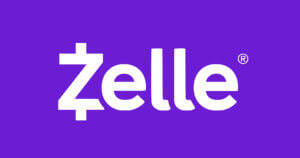Senator’s Report Finds Fraud On Zelle is Surging & Banks are Refusing to Refund Customers; Bank Group Responds
 October 4, 2022 — A new report released by Sen. Elizabeth Warren (D-MA) has found reports of scams and fraud on the bank-owned P2P payment network Zelle are surging, but banks have refused to refund customers for most of their losses, even in the face of federal consumer protection law.
October 4, 2022 — A new report released by Sen. Elizabeth Warren (D-MA) has found reports of scams and fraud on the bank-owned P2P payment network Zelle are surging, but banks have refused to refund customers for most of their losses, even in the face of federal consumer protection law.
The report comes at the same time CUToday.info has been reporting on lawsuits filed against financial institutions, including some credit unions, over fraud on the Zelle platform.
The Zelle money transfer system is run by Early Warning, a consortium based in Scottsdale, Ariz., that is owned by seven banks: Bank of America, Capital One, JPMorgan Chase, PNC, Truist, U.S. Bank and Wells Fargo.
Warren said the findings are based on data reported by several of the banks that run the Zelle network, which found the four banks that provided data are on pace to exceed $255 million in fraud on Zelle this year, up from $90 million in 2020, according to the report.
Zelle “is rampant with fraud and theft, and few customers are getting refunded,” said Warren, who sits on the Senate’s Banking Committee.
Acrimonious Hearing
The New York Times noted the report follows a Senate hearing last month that turned acrimonious when Warren pressed the leaders of several large banks about their lack of response to her requests for information about Zelle fraud.
“You didn’t provide any of the information that we requested in our letter, none of it,” Warren said at the hearing. “So, what I want to know is, is that because you don’t keep track when your customers report fraudulent Zelle transactions? Or is it because you do keep track and you know exactly how many fraudulent transactions have been reported, and you want to keep that report a secret?”
Four banks — Bank of America, PNC Bank, U.S. Bank and Truist — provided the data on which Warren’s report was based.
Wide Variations
According to the report, that data revealed wide variations in how the banks addressed fraud claims. PNC refunded only 14% of the 10,683 claims it received about unauthorized Zelle payments, while Truist repaid 82% of its 24,752 claims.
In response to the Warren report, Early Warning responded with a statement that said, “The proportion of fraud and scams has steadily decreased” on its network since its launch in 2017.
In 2021, the company said people sent $490 billion through Zelle (compared with $230 billion through Venmo, its closest rival), a 60% increase from the $307 billion sent in 2020.
Bankers’ Group Responds
Meanwhile, in response to the Warren report, Independent Community Bankers of America President and CEO Rebeca Romero Rainey said,
“ICBA and the nation’s community banks are outraged by increasingly sophisticated fraud perpetrated by criminals against consumers, including those duped into authorizing payments to scammers using Zelle and other peer-to-peer payments services.
“With more than 99.9% of Zelle transactions sent without any report of fraud or scams, community banks appreciate the ability to offer the quick and efficient payments services that customers demand while encouraging Zelle and the largest banks to take measures that improve consumer awareness and protections against fraud. Consumer protection is ingrained in the community bank business model…
“Regulatory restrictions are not the answer to P2P fraud because they will never keep up with the pace of evolving fraud and will serve to disrupt banking services, forcing consumers to look to nonbank money transmission services that operate outside of the banking sector,” Romero Rainey continued. “Further, unlimited liability for P2P fraud under Regulation E would have a disproportionate impact on community banks.
“Instead, policymakers should focus more on the fraudsters and work with P2P technology vendors to maximize consumer awareness of fraud schemes and implement safeguards, such as multifactor authentication, to reduce consumer approvals of fraudulent transactions without delaying consumer access to their funds.”